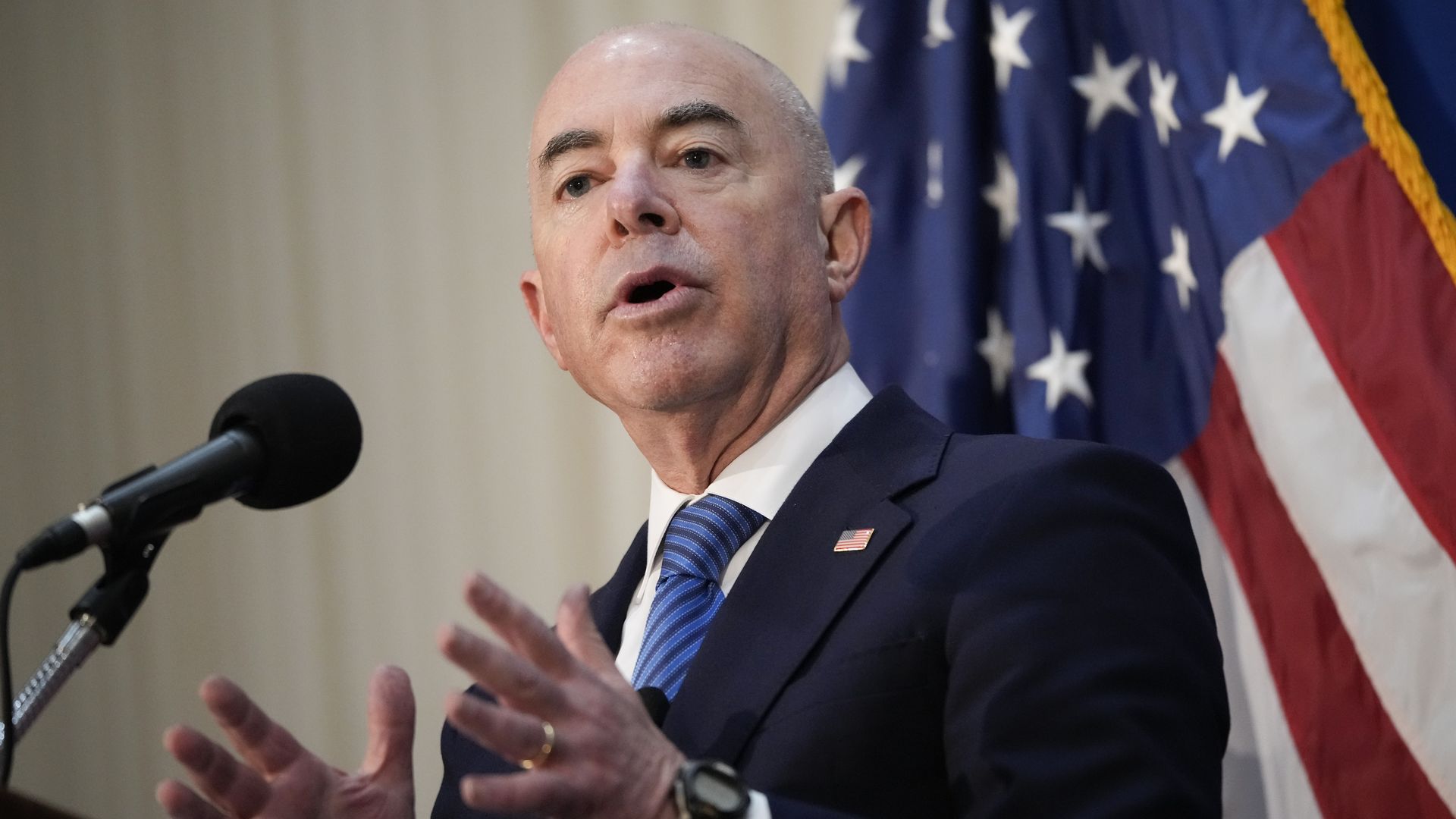Muslim Americans sue DHS over "unconstitutional" religious questioning
Add Axios as your preferred source to
see more of our stories on Google.

Photo: Drew Angerer/Getty Images
The American Civil Liberties Union is suing the Department of Homeland Security on behalf of three Muslim Americans who say border officials violated their First Amendment rights by asking them about their religion.
Driving the news: The ACLU said in a press release that when the plaintiffs returned to the U.S. after traveling abroad, border officers "asked them inappropriate religious questions, including whether they are Muslim, whether they attend a mosque, which mosque they attend, whether they are Sunni or Shi’a, and how often they pray."
- Ashley Gorski, senior staff attorney with the ACLU’s National Security Project, called the line of questioning "invasive," adding that it serves "no legitimate law enforcement purpose."
Details: Homeland Security Secretary Alejandro Mayorkas is one of the people being sued, along with three other federal officials.
- "Religious questioning such as this violates the U.S. Constitution. It furthers no valid — let alone compelling — government interest, and it is an affront to the First Amendment freedoms of religion and association," the lawsuit says.
- "Moreover, because Defendants specifically target Muslim Americans for such questioning, they also violate the First and Fifth Amendments’ protections against unequal treatment on the basis of religion."
- The lawsuit says border officers "stigmatize" Muslim Americans "for adhering to a particular faith and condemn their religion as subject to suspicion and distrust."
State of play: The ACLU is asking the U.S. District Court for the Central District of California to order DHS officials to "expunge" all records they have retained "regarding the unlawful religious questioning" of the plaintiffs.
- The ACLU argues that answers to those questions are kept in a law enforcement database for up to 75 years.
What they're saying: "I am proud to be a Muslim," said Imam Abdirahman Aden Kariye, a plaintiff in the case. "But now whenever I travel back home to the United States, I’m anxious."
- "I’m constantly worried about how I will be perceived, so much so that I try to avoid calling any attention to my faith. I normally wear a Muslim prayer cap, but I no longer wear it at the airport to avoid being questioned by border officials."
- "What I experienced at the hands of CBP when coming back to my own country still haunts me,” said plaintiff Hameem Shah. “I thought that being an American meant that I and others are free to practice any religion that we choose."
DHS did not immediately respond to Axios' request for comment.
